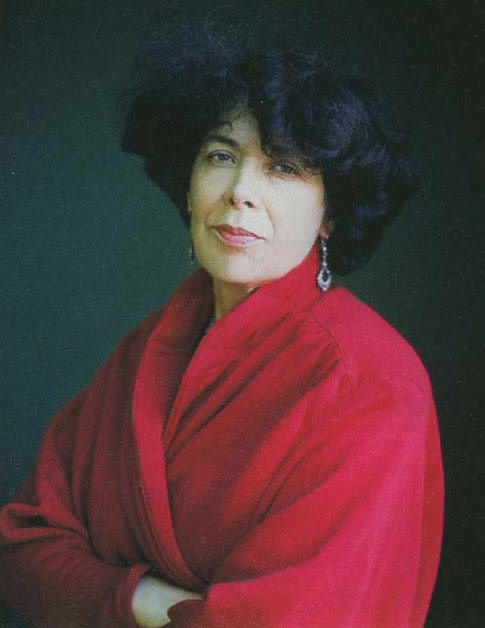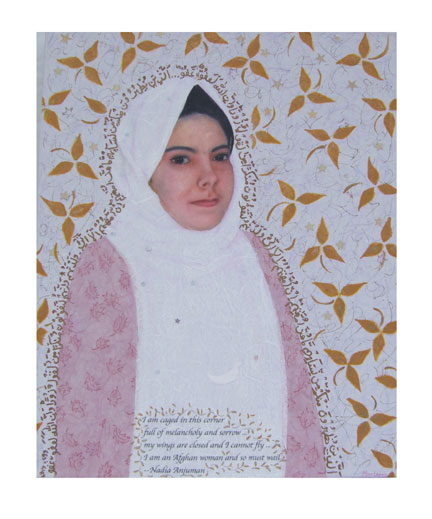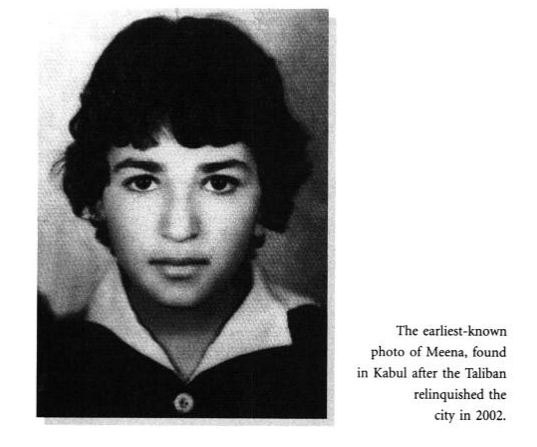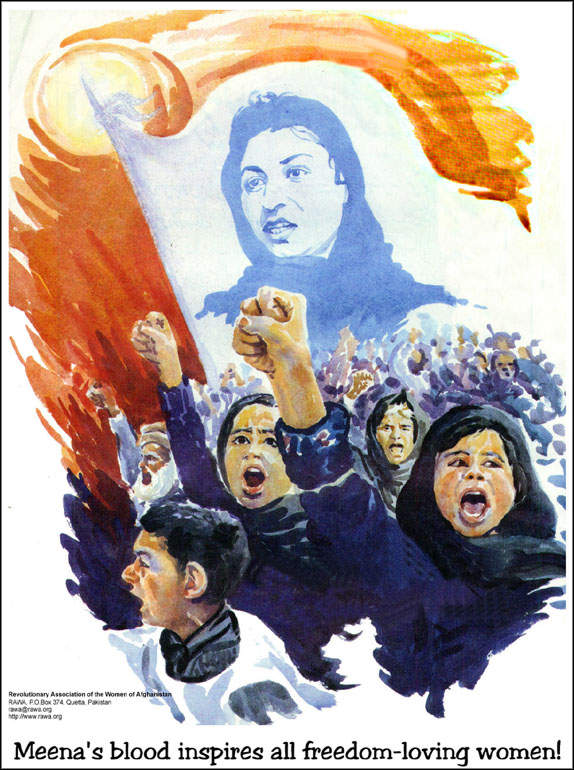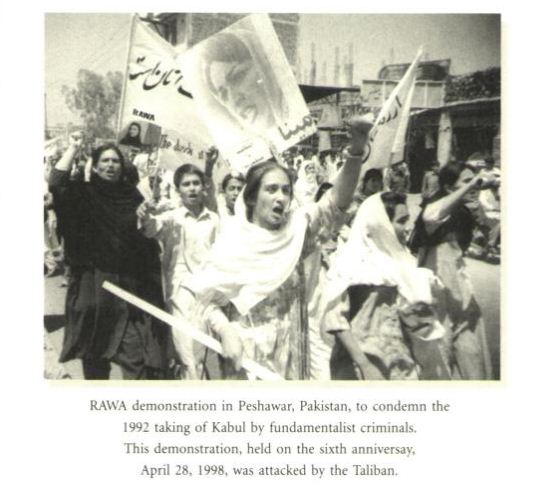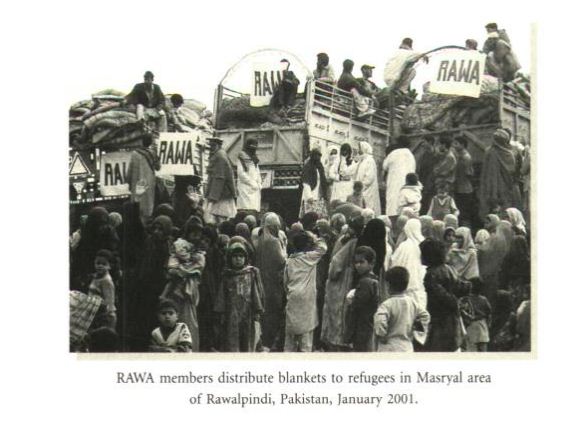 /Photo: See Red Woman’s Workshop/
/Photo: See Red Woman’s Workshop/
Adrienne Roberts is a lecturer in International Politics at the University of Manchester since 2012. Her research and teaching interests are in the areas of international political economy, feminist political economy, debt and debt-driven development, and gendered dimensions of the carceral state and the criminalization of poverty.
Her work has been published in journals such as Third World Quarterly, International Feminist Journal of Politics, New Political Economy and Critical Sociology. Her book Gendered States of Punishment and Welfare: Feminist Political Economy, Primitive Accumulation and the Law (Routledge) was published in 2016. Roberts was a guest of the 10th Subversive Festival – European Left Against New World (Dis)order in Zagreb.
How is gender equality used as a stratgey of corporate business growth and a way of legitimizing capitalist exploitation?
It’s not only the corporations, but also a lot of the neoliberal government instutions, that have latched on the idea of gender equality as being smart economics. The idea is that it makes good economic sense to empower women. The problem here is how the empowering of women is understood, which is empowering women as workers and as consumers.
There’s been a lot of talk about the need to indrease women’s “human capital”, so that they can be integrated into the work force. What gets left out of those types of arguments is any attention to all the work that women already do, whether it’s dometic labour or home based work or various forms of the so-called informal labour. That is largely ignored in the debate that is positioned in a way that says that including women into the capitalist labour market leads to empowering.
What is the risk in enforcing such visions of empowerment?
The risk is that in ingoniring all of the other work that women are already engaged in, we risk further increasing the burden placed on women. It’s also important to talk about the power of women as consumers.
Different national economies and global economy in general haven’t recovered from the crisis of 2007/8, and we’re seeing stagnating levels of economic growth. Women are meant to be the real miracle workers, they are the ones that are going to get us out of it – empowered as workers and consumers. Valuing women as consumers risks obscuring all sorts of other inherent aspects of gender equality. Gender equality is underminded by the view that inequality is best solved by the integration into the capitalist market.
In connection to what you said about women as consumers, could we talk about feminism as a brand, the way it is often used as a marketing strategy, particularly in the Western countries, and then there are growing industries for empowering through “feminist” products?
There are many examples of how that’s done, and it depends on the type of feminism we’re talking about. This type of feminism is liberal feminism that isn’t challenging enough on a whole range of norms associated with femininty and capitalism.
All of the attempts to sell Dove products because they are somehow more natural and allow women to express their beauty naturally, but at the same time featuring images of women who are still being commodified and valued because they are attractive women, is a bad attempt to reconcile feminism with cosmetic industry. You see it in fashion magazines, like Vogue and Elle, which have explicitly adopted the feminist stance but don’t see any contradiction between that and continuously creating unrealistic and unachieveable standards of beauty.
How does this type of work contribute to feminism and does it at all?
There’s a lot of debates around that. I think it does. It’s obvious that feminism means a lot of different things to a lot of different people. In the USA, another example of this would be around Beyonce and her type of feminism, feminism of the famous, powerful and rich. They do have a message of empowerment and it does speak to a lot of people. Is that limited understanding of feminism? It is.
But this is a tricky question because it’s important for feminism not to alienate people and cause more separation, but there’s also danger in supporting feminism that is so inoffensive to the capitalist system, a system which is detrimental for women in so many ways. In such a narrow view of feminism, possibilities for major social changes are extremely limited.
Thinking about feminism globally, how can the feminism in the “developed countries” affect women elsewhere – like the “third world” labour, which now greatly depends on underpaid female wrokers? We can think about the relation of female workers and consumers of the garment industry as an example.
This is where the allegiance of different feminist organizations is important, and there are feminist groups that work on that. There are different feminist campaigns that have emerged globally, largely as respones to the corporate driven feminist agenda, and they are precisely about trying to draw attention to ways corporations exploit women through various industries, such as the garment industry, which is not well regulated.
This cannot only be tied to campaigns on consumption and western-based feminist movements by fair trade clothing, because that’s still too simplistic and too indvidualistic and not transformative enough. There are other ways consciousness can be raised among feminists in the West by linking up with the very people involved in making the products we consume. There are many venues where these sorts of discussions are happening now, around the world, like social forums. It’s an ongoing project and its future is yet to be determined.
 /Photo: For All Womankind/
/Photo: For All Womankind/
You’ve wrritten a lot about the role of the state in forcing women to adhere to the historically shaped roles and categories, including those of paid and unpaid work. How crucial is the role of the state?
It’s essential. There are so many ways we can think about the involvment of the state historically and in the present moment, in producing and securing gender norms, inculding gender norms around paid and unpaid labour. In the book Gendered states of Punishment and Welfare, I am looking historically, up to neo-liberalism, at how the state is involved in creating specific gender norms.
Before the transition to capitalism you have the family working together for the most part, as an integrated unit, you don’t have the separation of what we now call productive and reproductive labour. Through a whole host of state policies in the early stages of transition to capitalism, a change is happening.
I am talking about state policies in England to create private property, done through different laws, and then the private property being regulated in a way that criminalizes peasantry, and says they are no longer able to collect food, fish, etc. All of these laws lead to creating wage labour, and people not involved in wage labour are to be punished. As we get further along the capitalist development, closer to the Industrial revolution and particularly after the Industrial revolution – these laws take on a more gendered form.
They are not just trying to create a class of wage labourers, they also say women need to behave in very particular ways if they want to be considered deserving of any sort of state support. If you are unmarried, if you have “bastard” children, you’re considered to be undeserving. There are similiar types of practices now, but with the move from the welfare state to work state, there is a disregard for all sorts of reponsilibilites women tend to have, and there is a rise of equality with the vengance within the criminal system.
Talking about equality with vengance – a big part of your research focuses on the carceral state and gendered forms of poverty, especially in connection to the criminalisation of poverty.
With the criminal system during the welfare state, which was still highly gendered and problematic on many levels, women used to be thrown in reformatories, and now you have women who are treated increasingly harshly, who are thrown into prisons similar to men’s. You’re not seeing the disciplining of women in a gender specific way, as it was seen in the welfare state era.
This has horrifiying results because when we stop paying attention to reasons why people end up committing criminal acitvity, we lose sight of the fact that women who are in jail are almost always there either for drug related crimes or for property related crimes, petty thefts, etc. If they are there for violence it is normally for violence committed against an abusive partner.
The reasons for those crimes are rooted in women’s socio-economic position and gendered forms of precariousness that are produced by neoliberalism. To ignore that and assume that women have made a cost-benefit calculation and a rational choice to engage in crime and that the way we need to deal with that isn’t through social support and social services, but through a harsh state that will be punitive in its reaction to crime is a really wrong approach.
You also look at debt-development a lot, but unlike many researchers, you analyze it on a micro-level, on the level of households.
What’s been going on since 1990’s through the microcredit projects is that so-called development in the so-called Third world is presumed to be something that can happen and that can be enabled by providing loans at the small scale to indviduals and increasingly to women. Somehow the provisioning of these loans is magically going to enable them to start sustainable businesses to bring themselves and their communities out of poverty. The microcredit project has been discredited over the years, we have several decades of studies that have shown it has failed to deliver on its intended outcome.
But the idea behind it hasn’t disappeared by any means, we’re seeing it reinvented right now in the interest that the development agencies and states have in supporting small to medium enterprises, as well as the focus on enterprenourship and women particularly. Even when they’re not talking about microcredit as much, there is still this assumption to provide small amounts of loans and business training to women and that is how we will achieve development. That bypasses all of the existing issues around underdevelopment and it doesn’t address the role of the state in supporting and working towards the reduction of poverty.
And finally – how is it possible to develop deeply transformative feminism in a capitalist system, if gender inequality was so essential in the development of capitalism?
That is why feminism needs to be anti-capitalist. There are inherent limits to forms of gender equality we can attain in a capitalist system because it is historically founded on gender inequality and it always enables to continue to profit and accumulate by reproducing gender inequality. I don’t see a time where we can have gender equality in capitalism. This is still not a widely recognized feminist position, but it’s also important to fight battles as they come up.
One big problem of Marxist feminists is that their critique is of such great proportions, on a structural level, and it risks taking away the sense from the small battles within the capitalist system, which are all necessary and important for the immediate needs and everyday lives of so many people.
We need to hold on to the analytical understanding of the roots of the gender inequality, but that isn’t meant to be a demobilising approach that says that anything that’s not directly undermining the system is useless.
• • •
This interview was also published in Croatian, on H-Alter.
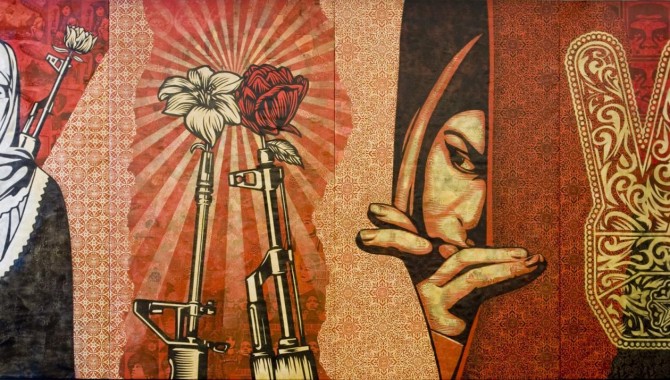 /photo: Shepard Fairey, Obey Middle East Mural/
/photo: Shepard Fairey, Obey Middle East Mural/





